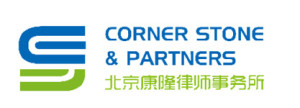It is well known that the China Trademark Office (CTMO) has refused to accept retail as a valid service in class 35 trademark applications over many years. In many other countries, however, retail service is acceptable for trademark registration in class 35.

Partner
Corner Stone & Partners
The main reason why the CTMO adopts this examination criterion is that they hold that service usually implies providing a certain service for others and getting paid for it, while retail usually refers to the applicant’s selling its own goods, instead of selling goods for others. Thus, the CTMO does not deem retail a valid service and, in turn, does not accept it as a service for trademark registration in class 35.
However, the CTMO’s attitude towards retail service, and examination criterion for it, have gradually changed over time. Since 2013, the office has made a small number of retail-related items acceptable services in class 35. Currently the acceptable services are as follows:
Retail services for pharmaceutical, veterinary and sanitary preparations, and medical supplies;
- Retail or wholesale services for drugs;
- Retail or wholesale services for pharmaceutical preparations;
- Retail or wholesale services for health preparations;
- Retail or wholesale services for medical supplies;
- Retail or wholesale services for veterinary drugs; and
- Retail or wholesale services for veterinary preparations.
Please note that only the above retail-related services are acceptable at present, and retail service by itself is still unacceptable for the time being.
Some advice
If an international trademark registration, with China as a designated country, contains retail-related services other than those listed above, the application will be rejected by the CTMO. Depending on the state of the application, we advise:
(1) In the event that a notification of refusal has not yet been issued. To avoid refusal, it is advised to have the retail-related services deleted or substituted for China. The adequate substitutes for retail services are usually as follows:
- Sales promotion for others;
- Provision of an online marketplace for buyers and sellers of goods and services; and
- Arrange and organise marketing promotion for others.
(2) In the event that a notification of refusal has been issued. If the applicant has received the notification of refusal from the CTMO on the ground of not accepting retail services, the applicant may file an appeal for review of refusal within the time limit, and, at the same time, file a request for limitation with the World Intellectual Property Organisation (WIPO) to have the retail-related services deleted or substituted to the above-mentioned items.
Meanwhile, the applicant may request the examiner to hold the review of refusal in abeyance, pending the completion of service limitation with the WIPO. Although the examiner may not necessarily leave the review of refusal in abeyance, with the current practice and timeframe, this method usually works in overcoming the refusal and getting the trademark registered.
It should be noted that whether the above-mentioned deletion or modification of service items could be accepted by the CTMO will be subject to the examiner’s discretion on a case-by-case basis.
Other issues
The CTMO will not issue a registration certificate for an international registration. If the applicant would like to obtain an official certificate proving the registration, it is advised to apply to the office for a certified copy of registration (i.e., a confirmation certificate).
Furthermore, the CTMO will usually send all notifications regarding an international registration directly to the owner, or its representative’s address recorded by the WIPO via unregistered or first-class postal mail. If a third party files a non-use cancellation against this registration, it is quite common that such notification may be delayed, or sometimes lost, which may lead to the expiration of deadlines.
As another advantage, according to current practice, a Chinese firm, once it has handled the request for the certified copy of registration, will be recorded by the CTMO as a relevant party associated to this international registration.
After that, although future notifications will still be sent to the owner’s address, or representative’s address recorded by the WIPO, the CTMO will send a copy of these notifications to the said Chinese firm so that the trademark owner will be able to timely respond to these notifications.
Nick Ji is a partner and trademark & patent attorney at Corner Stone & Partners

Corner Stone & Partners
1905, Tower B, Tian Yuan Gang Centre,
No. 2 Dongsanhuan North Road, Chaoyang District,
Beijing 100027, China
www.cornerstoneip.com.cn
Contact details:
Tel: +86 10 8446 4600 (ext. 807)
Email: nick.ji@cornerstoneip.com.cn



























